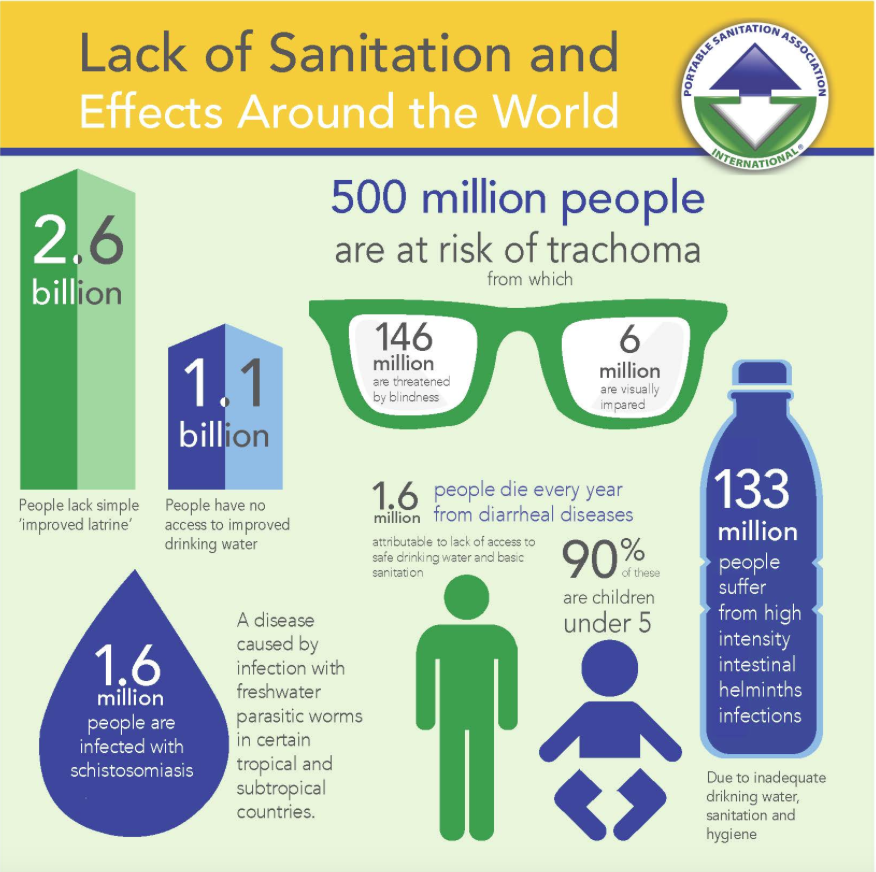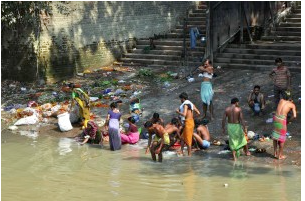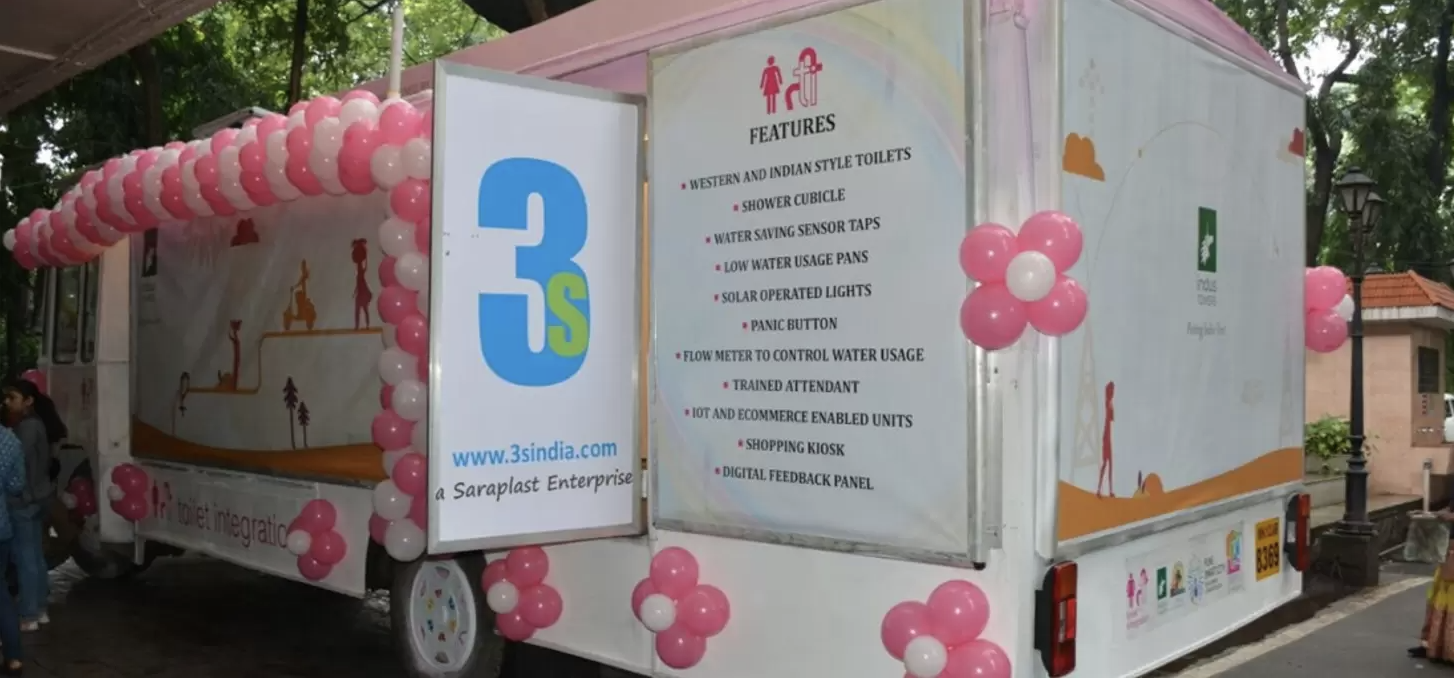Global Issues
In some areas of the world there is simply no sanitation.
 “This is why the [man] laughed at me. He thought that I thought a toilet was my right, when he knew it was a privilege.”
“This is why the [man] laughed at me. He thought that I thought a toilet was my right, when he knew it was a privilege.”
“It must be, when 2.5 billion people don’t have sanitation. I don’t mean that they have no toilet in their house and must use a public one with queues and fees. Or that they have an outhouse, or a rickety shack that empties into a filthy drain or pigsty. All that counts as sanitation, though not a safe variety. The people who have those are the fortunate ones. Four in ten people have no access to any latrine, toilet, bucket, or box. Nothing. Instead, they defecate by train tracks and in forests. They do it in plastic bags and fling them through the air in narrow slum alleyways.
If they are women, they get up at 4:00am to be able to do their business under cover of darkness for reasons of modesty, risking rape and snakebites. Four in ten people live in situations where they are surrounded by human excrement because it is in the bushes outside the village or in their city yards, left by children outside the backdoor. It is tramped back in on their feet, carried on fingers onto clothes, food and drinking water.”
“The disease toll of this is stunning. A gram of feces can contain 10 million viruses, 1 million bacteria, 1,000 parasite cysts, and 100 worm eggs…”
― Rose George, The Big Necessity: The Unmentionable World of Human Waste and Why It Matters. Check out Rose George’s TED Talk here and learn more.
Where water and sanitation are scarce, portable restrooms provide the local population with their first-ever toilets. In places like these, portable sanitation not only provides safety and dignity, it saves lives.
Read how a PSAI Member in India is helping to address the issues in his country.



